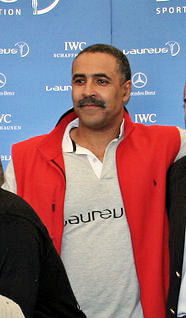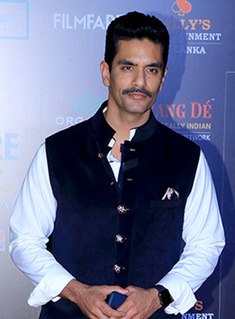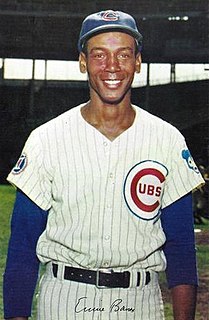A Quote by Daley Thompson
People tend to like an athlete's performance, but if you don't get a feeling for the individual, you're not very emotive about them.
Related Quotes
What's hard to do is describe why you like something. Because ultimately, the reason things move people is very amorphous. You can be cerebral about things you hate, but most of the things you like tend to be very emotive. It's really hard to do a literary reproduction of what makes you happy. That's what I try to do. If nothing else, it seems like there's enough people out there telling the world what isn't cool, or what's terrible, or what's depressing. I think there's an element of cynicism in my writing, but I'm an optimistic cynic.
When I have a writing workshop, I like to have people that are anthropologists and people who are poking around in other fields, I like to have them all in the same workshop, and not worry about genre. I like to mix it up, because the kind of comments you can get from a fiction writer about your poetry are going to be very different than what you'll get from a poet. Or the comments you'll get from a filmmaker about your performance are going to be very different. My writing workshop is about mixing it up, cross-pollinating, not only in genres but in occupations.
It's far easier to write why something is terrible than why it's good. If you're reviewing a film and you decide "This is a movie I don't like," basically you can take every element of the film and find the obvious flaw, or argue that it seems ridiculous, or like a parody of itself, or that it's not as good as something similar that was done in a previous film. What's hard to do is describe why you like something. Because ultimately, the reason things move people is very amorphous. You can be cerebral about things you hate, but most of the things you like tend to be very emotive.
There were radio shows where you actually got to hear people play off of each other and get that immediate magic that goes on. And rather than doing what a lot of shows do, where an individual comes in, reads their part, and you edit it together later on and try to build a performance, we're lucky because this is really very much a theatrical performance that is going on, every single week.
Definitely, there's a lot of trouble you come up against when you're acting and directing, about your performance. Sometimes it's hard to be objective about it. I will tend to get two takes and walk away. I don't belabor it, and it's important to me to have someone who says, "You know what? You should get another one, and maybe you should try it like that".
People are great. But there's people who you get together with and you talk and you go away feeling energized, you feel inspired. And then there's people who you talk with and you go away feeling horrible, feeling drained, feeling like you're incapable of doing anything. Those people are psychic vampires and I now stay away from them.
The world of the stage and the performance on the stage usually does not tend to translate very well - it doesn't tend to hold very well - once cameras are on it; it's not like it's terrible or embarrassing or bad anything, but, I, as an actor, would perform a role differently for an audience than I would for just cameras.




































